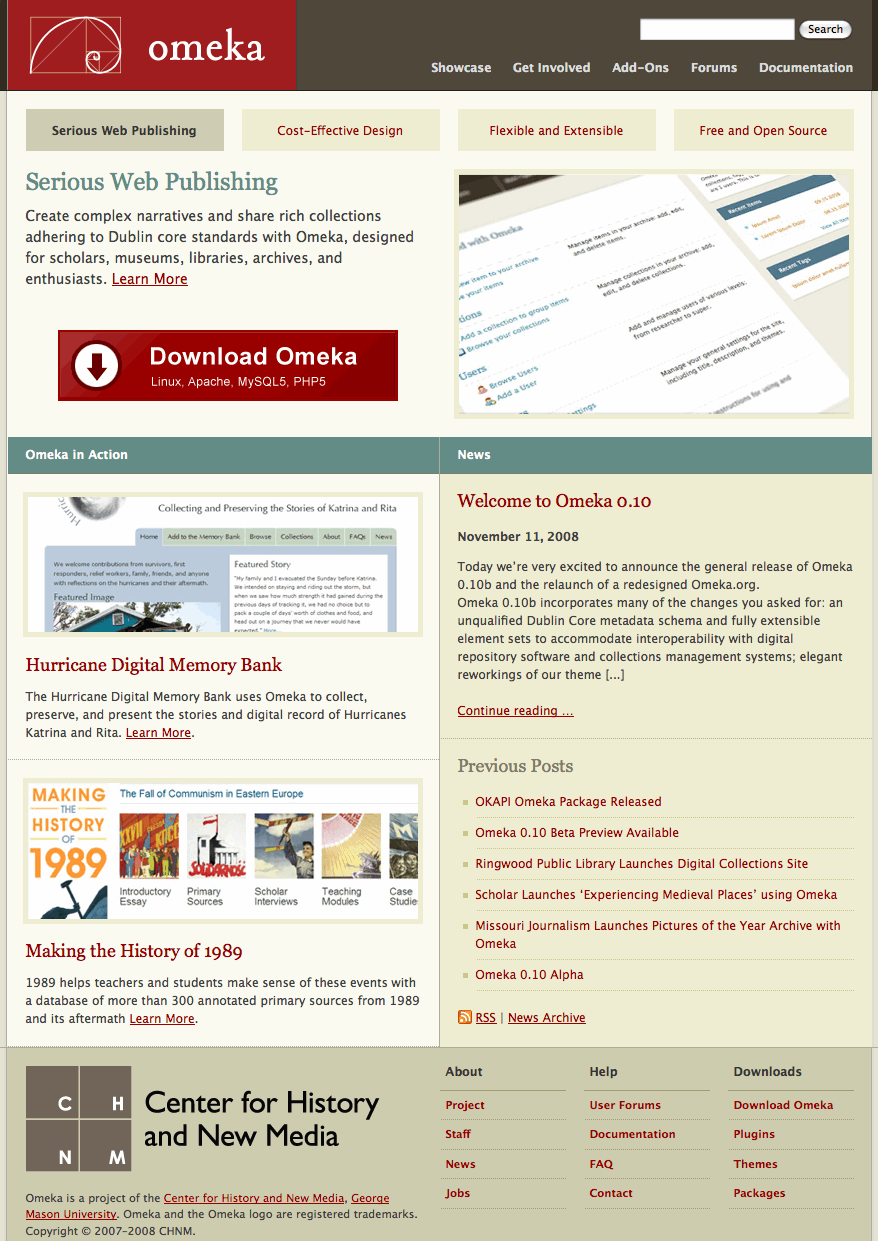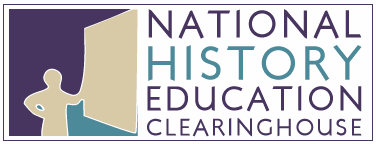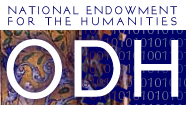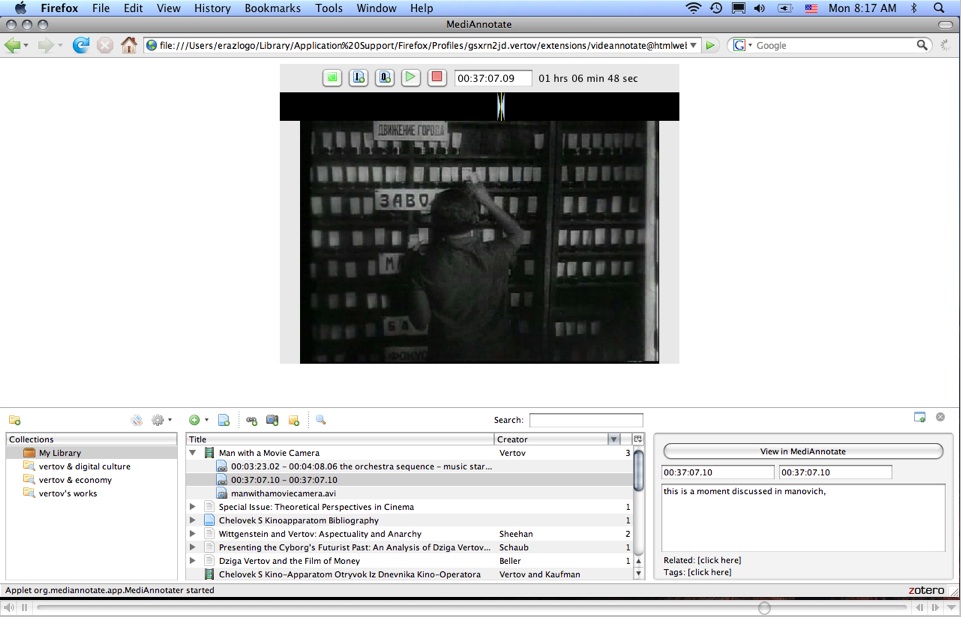 After nearly six months of extensive testing and tweaking, and with countless bug fixes done in progression with the movements of the Firefox 3 team, I’m pleased to report that the first version of Zotero that synchronizes with the much-awaited Zotero Server has been released for trial by the general public. Yes, you can now access your Zotero collection from anywhere and synchronize it across multiple machines (of any operating system). And of course the copy of your collection on our server means that you now have a free automatic backup of your Zotero library data.
After nearly six months of extensive testing and tweaking, and with countless bug fixes done in progression with the movements of the Firefox 3 team, I’m pleased to report that the first version of Zotero that synchronizes with the much-awaited Zotero Server has been released for trial by the general public. Yes, you can now access your Zotero collection from anywhere and synchronize it across multiple machines (of any operating system). And of course the copy of your collection on our server means that you now have a free automatic backup of your Zotero library data.
[Long-time readers of this blog and my writing elsewhere know that this major update to Zotero was due some time ago; all I can say in my defense is that: 1) Firefox 3 was also supposed to be released last fall but finally was released at the end of June (and we needed Firefox 3 for the server versions of Zotero); 2) we’ve continued in the meantime to add dozens of new features and hundreds of new supported sites suggested in our forums to the “classic” version of Zotero; 3) synchronization of digital collections across multiple machines and our server is an outrageously difficult task (ask your local computer science guru); 4) we’ve also used the additional time to add functionality to Zotero 1.5 and subsequent versions that we believe will keep it far ahead of any commercial alternatives, and that will begin to enable Zotero’s communication with the Internet Archive. OK, enough of the mea culpas. Let’s get back to the exciting news.]
 Although Zotero 1.5 maintains its easy-to-use iTunes-like interface, behind the scenes it includes a complex, robust communications and synchronization layer that provides the foundation for all subsequent releases of the software and our soon-to-come Zotero website and services, including public and private groups, collection sharing, and recommendations. This new layer also means that Zotero can begin to synchronize and link to other repositories, services, and applications on the Web. Although we have already gotten a lot of interest from outside software developers in creating extensions to Zotero, the new 1.5 will be another leap forward in allowing these developers to combine Zotero with whatever scholarly software or collections they are working on.
Although Zotero 1.5 maintains its easy-to-use iTunes-like interface, behind the scenes it includes a complex, robust communications and synchronization layer that provides the foundation for all subsequent releases of the software and our soon-to-come Zotero website and services, including public and private groups, collection sharing, and recommendations. This new layer also means that Zotero can begin to synchronize and link to other repositories, services, and applications on the Web. Although we have already gotten a lot of interest from outside software developers in creating extensions to Zotero, the new 1.5 will be another leap forward in allowing these developers to combine Zotero with whatever scholarly software or collections they are working on.
Other goodies we’ve thrown in (beyond this list of additions ported from 1.0) simply because we listen to our users and like to make them happy:
- Even though Zotero has beaten Endnote in head-to-head competition, one point of comparison that some people thought Zotero was inferior on was its lack of the thousands of citation styles available on that commercial program. We still believe that the open source style system we have adopted, CSL (created by Bruce D’Arcus), is far more flexible and robust than the citation style systems of Endnote and other tools, and when you really look at the supposed “thousands of Endnote styles” they are really just many of copies of a limited number of styles with different journal names stuck on. Nevertheless we decided to make this point of comparison moot. Zotero users can now use Endnote styles as well as CSL styles, although we still plan to aggressively build out from the dozens of CSLs currently available and strongly encourage the creation and use of CSLs.
- We have added preliminary support for ZeroConf. Let me translate the tech-speak: underneath the hood, Zotero now has the ability to broadcast collections over a local network, without going through the Zotero server. This means that a group of students in a classroom or academics at a conference can enable sharing and see and grab references or links from other users, much the same way that you can share your iTunes music library with others nearby. We plan to expand support for this feature in subsequent releases. (For now, it’s a bit hidden for testing.)
As always, when I use “we” in posts about Zotero, I mean our incredible team: the Center for History and New Media‘s Director of Research Projects Sean Takats (who has succeeded me in that role), Lead Developer Dan Stillman, Connie Sehat (former CHNM senior staffer who has just been hired as Emory‘s Director of Digital Scholarship), Zotero community liaison Trevor Owens, and the core developer team of Simon Kornblith, Jon Lesser, Michael Berkowitz, and Raymond Yee.
Why not take Zotero 1.5 for a spin (we include the normal caveats about beta software on our site, but in my experience it’s rather stable), extend it with plugins, or develop your own software for the Zotero platform?




 What began as a plucky “initiative” has now become a permanent “office.” The
What began as a plucky “initiative” has now become a permanent “office.” The 
 And since it’s been a little while since I’ve done shameless cheerleading for Zotero, it’s humbling to get the recognition from
And since it’s been a little while since I’ve done shameless cheerleading for Zotero, it’s humbling to get the recognition from